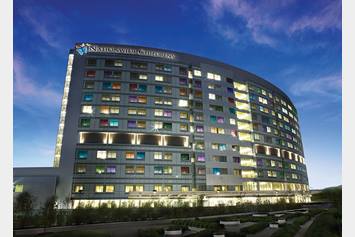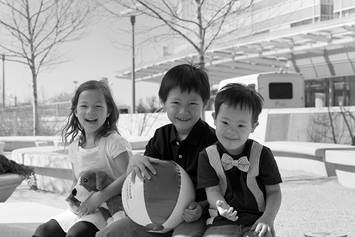Fifth Disease (Erythema Infectiosum)
Fifth disease is a viral illness that causes a rash on the face, arms, and legs. It is common in children and usually goes away on its own.
What Is Fifth Disease?
Fifth disease is a mild illness caused by a virus called parvovirus B19. It is rarely serious. Its most obvious symptom is the bright red rash or “slapped cheek” look of the face.
The disease occurs most often during the late winter and early spring in children between the ages of 4 and 10. However, older children and adults, especially females, can get it.
Fifth disease is contagious (spread from person to person) in the early stages before symptoms appear. Once the rash appears, it is no longer contagious. It is spread by coughing, sneezing or by touching secretions from the nose and mouth of an infected person. After your child has fifth disease he or she will not get it again.
What Are the Signs and Symptoms of Fifth Disease?
Fifth disease has 3 stages:
The first stage (incubation period) lasts 7 to 14 days. This is when the child can spread the disease to others without knowing.
- Mild fever
- Mild headache
- Cold-like symptoms (stuffy or runny nose, sore throat)
- Fatigue
- Mild muscle or joint pain and swelling, especially in older children and women
Second stage starts 2 to 3 weeks after exposure. This is when the child is no longer contagious.
- Bright red, “slapped cheek” rash on face
- Rash fades after 5 to 10 days
Third stage may last 1 to 3 weeks.
- Rash spreads to chest, arms and thighs
- Looks blotchy and like lace
- May be itchy but is painless
The rash may come back after several weeks. It can be triggered by sunlight, exercise, extremes of heat or cold or emotional stress.
How Is Fifth Disease Treated?
There is no treatment for fifth disease. Most children get well without treatment.
If your child has a fever or joint discomfort, you may give acetaminophen (Tylenol®) or ibuprofen (Motrin® or Advil®). Read the label to know the right dose for the age of your child.
Do not give ibuprofen to children younger than 6 months. For children younger than 6 years, do not give over-the-counter (OTC) cold or cough medicine without asking your child’s doctor. Do not give aspirin or products that contain aspirin.
Preventing the Spread of Infection
There is no vaccine to prevent fifth disease.
To prevent the spread of infection:
- Wash hands often
- Cover the mouth and nose when coughing or sneezing
- Avoid touching the mouth or nose
Pregnant women should avoid being near children with fifth disease. If exposed, they should call their health provider. Fifth disease may harm an unborn child.
When To Call the Doctor
Call the doctor if your child has:
- Fever more than 102° F after treating for 3 days
- Severe joint pain or swelling
- A condition that weakens the immune system (like sickle cell disease, cancer, or hemolytic anemia)
Return to School
Your child can return to school after the rash disappears and he has no fever.
Helping Hands Patient Education Materials
Written and illustrated by medical, nursing and allied health professionals at Nationwide Children's Hospital, Helping Hand instructions are intended as a supplement to verbal instructions provided by a medical professional. The information is periodically reviewed and revised to reflect our current practice. However, Nationwide Children's Hospital is not responsible for any consequences resulting from the use or misuse of the information in the Helping Hands.
HH-I-212 | ©2001, revised 11/17, Nationwide Children’s Hospital



